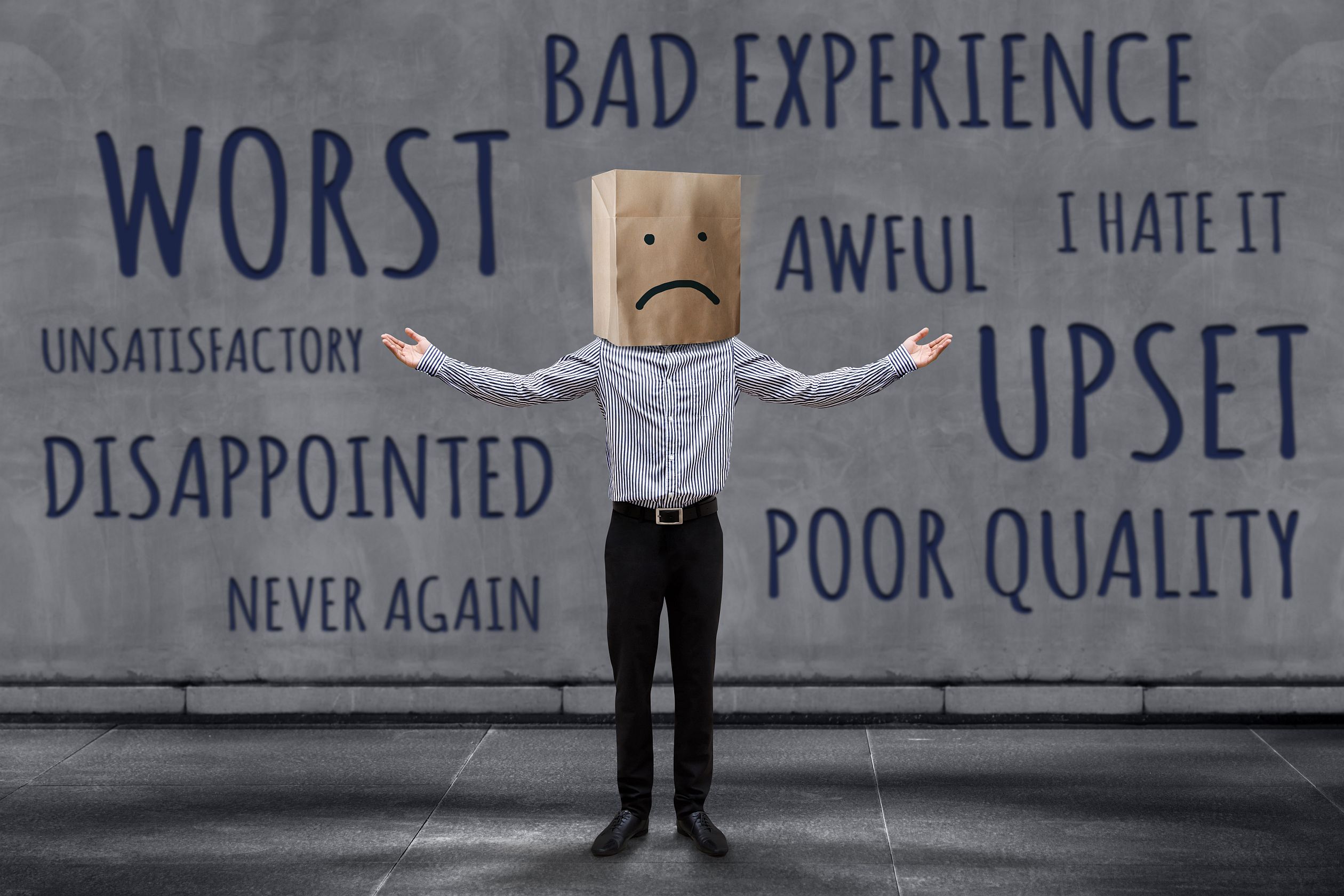
Keep in mind that the monthly bill from the landlord is not the only monetary housing expense for mobile home owners. Many mobile home owners are also paying off their mortgage loans and have house repair and maintenance expenses. They may have lot upkeep expenses too. But this post focuses solely on the details of the lot rental bill from the landlord.
Top 7 Items Included in Rent at Mobile Home Parks
Of course, you pay for a place for your house to sit (AKA land rental, lot rental or space rental). Your monthly bill from the park may include these essentials and extras.
(The items below are in no particular order or ranking.)
- Park Profit
- Lot Rent
- Utilities
- Park Infrastructure
- Park Management, staffing and services
- Park Amenities
- Pass-through costs
Below are details of what homeowners generally pay for in a mobile home park. However, this post does not discuss whether the homeowners believe they are actually getting full value for their payments.
Park Profit Can Be a Major Portion of the Lot Rent Bill
Even if a park is non-profit or resident-owned, the homeowners must pay the costs of operating the park, including its employee salaries and operating expenses. Otherwise, the business would go bankrupt and have to be shut down. A for-profit park will charge homeowners more than the park costs to operate in order to make a profit. How much profit is considered “fair return” is another subject but some governments have regulated parks to prevent gouging of homeowners.
To help you estimate the profit levels of some parks, you can look at the rent levels (AKA association fees) that are charged in Resident-Owned-Parks (AKA ROPs, ROCs) and compare them to for-profit parks in the same area.
At the time of this writing, the average “rent” in a Resident-Owned Community (ROC) in California was $301.00 a month. While similar nearby for-profit parks were over 4 times that amount. It is safe to assume that it does not cost 4 times (or more) to operate a for-profit park than it costs homeowners to run and manage their own nonprofit park. It appears that, at some parks, the homeowners are paying for extreme profit (being gouged, comparatively). This is consistent with the trend of large, wealthy private equity firms buying mobile home parks and jacking up rent on the homeowners. Also, see this NPR interview.

Housing costs are usually compared within their regions. California is a high-cost state for housing. Lot rent fees should be compared to other local costs and not to more distant regions. You can explore ROC lot “rent” fees in your state from this site.
Mobile Home Park Lot Rent Covers Many Benefits
When your home sits on rented land, you have to pay a monthly amount for the use of the landlord’s land. The landlord is in the business of renting mobile home park land and its facilities. This is a significant component of the monthly rent bill.
Mobile Home Park Utilities Are Often Included in the Rent Bill
Basic mobile home park utilities are water, electric, natural gas, sewer system and trash collection. Telephone and cable TV may be included, depending on the park. Utilities may be itemized, or you may be getting a bill directly from the utility company. Parks may vary in how they manage and bill for utilities. Ask the park office for details.
Park Infrastructure is a Cost Mobile Home Owners Must Bear
Don’t expect these expenses to be itemized on your monthly rent statement – but they are part of what you are “renting” and are folded into the regular bill.
Essential mobile home park infrastructure consists of paved streets, storm drainage, sewer system, water pipes and electrical distribution. Natural gas hookups may be included along with cable TV.
Understanding Mobile Home Park Infrastructure Costs
One way to understand a landlord’s infrastructure expense is to itemize costs into four categories. Using water as an example, it costs money to trench, lay and maintain the pipes. Next, when in use, the water in the pipe also costs money. The delivery of pressurized water to your home, as a service, is also a cost to the landlord. Finally, If the park management staff has to read the meters and create a water bill, that also takes time and money.
All these costs are often billed as one thing – “water”. But the reality is they are separate costs. Homeowners need all four parts of the system working to be able to rely on their utilities.
You can apply these four categories to other infrastructure items to understand the cost of infrastructure that mobile home owners pay for in their monthly lot rental bill.
Mobile Home Park Managers, Staffing and Services Are Paid For by Lot Rent
Your rent bill pays for park services and park management. These costs include park staff salaries; maintaining a park office, park Rules and Regulations enforcement, park patrols, park monitoring, park maintenance and customer service.
Often “park services” are loosely defined in contracts, if they are mentioned at all. This fogginess leaves much discretion to the park owner as to how the services are delivered. If the park owner is cutting costs to increase profit, park services and amenities may be reduced. This can lead to slow park deterioration and loss of desirability of the park, reducing home resale value.
Governments Provide Minimum Standards, but Mobile Home Owners Want More
Some governments require that parks maintain minimum standards for health and safety and they may inspect parks and enforce these laws. However, these minimums may be barely above acceptable levels.
Many mobile home park homeowners want to live in more than minimally acceptable conditions. They desire better conditions with a good margin of safety. That can mean park management is expected to responsibly maintain the park.
Homeowners often want cleanliness and cosmetic aesthetic standards to be enforced. These additional layers of quality usually result from the landlord’s policies about his park, and his consistent implementation and enforcement of higher standards.
Management Quality Determines Park Quality
These extra qualities have a cost. They require work by landlord staff to implement and maintain. Homeowners are paying for acceptable quality in their monthly rental bill, and the park owner is the only one who can keep and enforce quality levels.
Park staffing levels affect the quality of park services, including the reliability, security and desirability of the park. A park that is adequately staffed can maintain good standards of living for residents. Park staff’s job is to patrol, monitor and maintain standards. Homeowners pay for park management in their monthly rental bill and should expect responsive management.
Amenities Are Paid For in Lot Rent Billing
Part of your rent bill pays for commonly-shared parts of the park. Depending on the park, they may include a swimming pool, a clubhouse or meeting room, a bark park, laundry facilities, car wash area, basketball court, a gym and so forth.
Often these extra features are not guaranteed in the land rental contract and their quality is left to the discretion of the park owner. Some park owners, seeking higher profit, have been accused of failing to maintain park amenities and keep them open and available. But if the landlord has made no contractual promises concerning amenities, then it may be their lawful choice to provide and maintain them – or not.
Park Owners May Pass Through Their Costs to Home Owners
You may be required to pay additional landlord expenses in what resembles a triple-net lease (NNN lease) contract that contains pass-troughs. Pass-throughs are special landlord expenses passed on to the homeowners in their rent bill. Examples can be taxes, insurance, maintenance and capital improvements.
Pass-troughs can result in mobile home owners paying to maintain much of the mobile home park business for the landlord. Otherwise, these additional expenses would be a cost that reduces the landlord’s net profit.
For instance, if an emergency arises where the water system is polluted and the entire park needs new piping, it may be an expense that the homeowners are expected to cover. Usually, these sudden, large expenses are not billed in a lump sum because homeowners cannot afford it. Instead, they are billed incrementally over a period of years.
Pass through lease clauses reduce park business investor risk and increase the value of the park as a money-making investment while passing the financial risks onto the mobile home owners and lowering the value of their investment in their home.
When NNN leases are used in B2B arrangements, such as in industrial business parks, the renting business customer usually gets discounted rent as compensation for taking on the risk of the additional expenses. However, such contracts in mobile home parks may be in conjunction with increasing rent, not a reduction of it – the opposite of B2B NNN agreements.
When regular costs to homeowners rise, it negatively affects the resale value of the manufactured mobile homes. It is questionable that such business-oriented pass-through requirements should be used in consumer retail housing.
Check your lease contract for clauses that allow the landlord to pass additional expenses to renters.
Mobile Home Owners Pay For Numerous Things – Whether Delivered or Not
Mobile home owners pay for lot rent, utilities and the costs of the park business to keep it afloat. In for-profit parks, they pay extra amounts that the landlord keeps as profit. Some landlords retain a portion of these profits to cover additional park expenses. Park owners may keep a “rainy day” fund for emergencies to ensure that the park operates reliably under adverse conditions.
When a park owner spends all his profit or does not keep significant reserve funds for upgrades and emergencies, he may let the park deteriorate, or, instead, charge the large expenses to the mobile home owners.
Set Your Expectations Realistically
Controversy arises between the landlord and tenant when expectations are not met. Mobile home owners may feel they are paying for numerous things that the landlord should provide – even if the items are not explicitly guaranteed in the lease contract. These things may include security gates at the entrance, regular patrolling of the park to monitor its condition and cite rule violators, timely response when common items need repairs, keeping the office open for customer support, pool maintenance, trash pickup and much more.
Lot renters may need to carefully read their lease and Rules and Regulations to find out what they should get. If it isn’t covered in those documents, it may not be provided in the future, even if it is provided today – no guarantees. If unwritten items are taken away, it could lower the quality of the park and the value of the homes. The day-to-day living conditions may be lowered too.
What Mobile Home Owners Want From their Landlord
Homeowners expect their payments to get them infrastructure that works well and is diligently maintained. They want the park to be sufficiently staffed with experienced, competent personnel and the park office kept open and available. They want regular, consistent and fair enforcement of the rules and regulations of the park. They want staff to regularly patrol and monitor the park. They expect park landlords to screen new residents to ensure they are compatible with park standards and can afford to stay, reducing turnover. They expect amenities to be maintained and kept available. They want the landlord’s policy to exceed bare minimum standards and set examples of excellence, not negligence. But these minimum requirements may not be guaranteed anywhere in writing.
Even if the landlord provides management that exceeds the rental agreement requirements, lot renters should set their expectations correctly and consider that park management policies could change for the worse and there may be little they can legally do about it unless there are severe health and safety violations. This can happen when park management changes, especially if a large private equity firm takes over the park to make maximum profit.
You can find these requirements and more listed in the checklists section.




